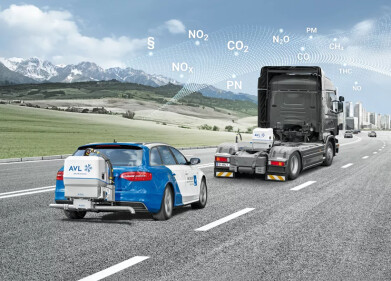Air Monitoring
WHO warns COP26: Air Pollution Must Be Addressed
Nov 17 2021
Last month, the World Health Organisation released a landmark study of global air pollution and its effects on health. Its conclusion: things are far worse than they once seemed.
The report studies particulate matter as a proxy for air pollution, using both diameter in microns and concentration as measurements of air quality. Of particular interest is the diameter of particulates, as a particulate's diameter decides whether the particle remains restricted to the lungs or penetrates further into the bloodstream, the latter being the more potentially deadly option. At a diameter of 10 microns or less, around 5 times smaller than that of human hair, particulate matter can find its way deep into the lungs. At 2.5 microns, particulate matter passes through the lung barrier and enters the blood. Unfortunately, all sorts of harmful particulates, like metals and combustion products, come in this size, posing a significant threat to health in surrounding areas.
What does the World Health Organisation tell us about air pollution?
For the most part, it is those of us living in and around cities who appear to be breathing this unhealthy air. But not all cities are created equal.
Of the 4 million premature deaths which they consider as having been caused by ambient air pollution, the WHO suggest that around 91% occurred in low- or middle-income countries. Further, people living in such countries are far more likely to be using biomass and kerosene oil in order to cook in or heat their homes, releasing what the report regards as serious pollutants into their living areas. As a result, then, the report affirms that air quality, both indoors and outdoors, is poorer in poorer areas of the world, placing a greater strain on weaker infrastructure.
Nevertheless, the WHO are adamant that this is a truly global problem. Indeed, by their calculations, 99% - yes, you read that correctly – of the global population in 2019 were breathing air which did not conform to guidelines established by the organisation in earlier reports.
Climate change and air pollution go hand-in-hand, report finds
All of which underlines the urgent need for efficient and reliable monitoring technologies. In a list of recommendations, the report suggests the use of anaerobic waste digestion as an alternative to the common practice of waste incineration and ensuring the appropriate quality of the resultant biogas will be critical. Similarly, in cases where the incineration of municipal waste is unavoidable, the report suggests that “strict emission controls” be enforced. There are several affordable instruments on the market for enforcing such controls, but of particular interest to regulators and safety officers around the world are automated environmental sensors. These sensors provide accurate, real-time readings of air pollution, enabling users to make on-the-go decisions about the safety of certain areas.
It is important to note that these strategies are considered by the World Health Organisation to be part of the fight against climate change. And it is for this reason that the report explicitly throws down the gauntlet for the delegates at COP26, which enters its final week today. "Improving air quality,” the WHO says, “can enhance climate change mitigation efforts, while reducing emissions will in turn improve air quality." For more information on the connection between climate change and air pollution, try out our article Explaining the Relationship.
Digital Edition
IET 34.2 March 2024
April 2024
Gas Detection - Biogas batch fermentation system for laboratory use with automatic gas analysis in real time Water/Wastewater - Upcycling sensors for sustainable nature management - Prist...
View all digital editions
Events
Apr 24 2024 Jakarta, Indonesia
Apr 24 2024 Sao Paulo, Brasil
Apr 30 2024 Melbourne, Australia
Apr 30 2024 Birmingham, UK
May 03 2024 Seoul, South Korea


















